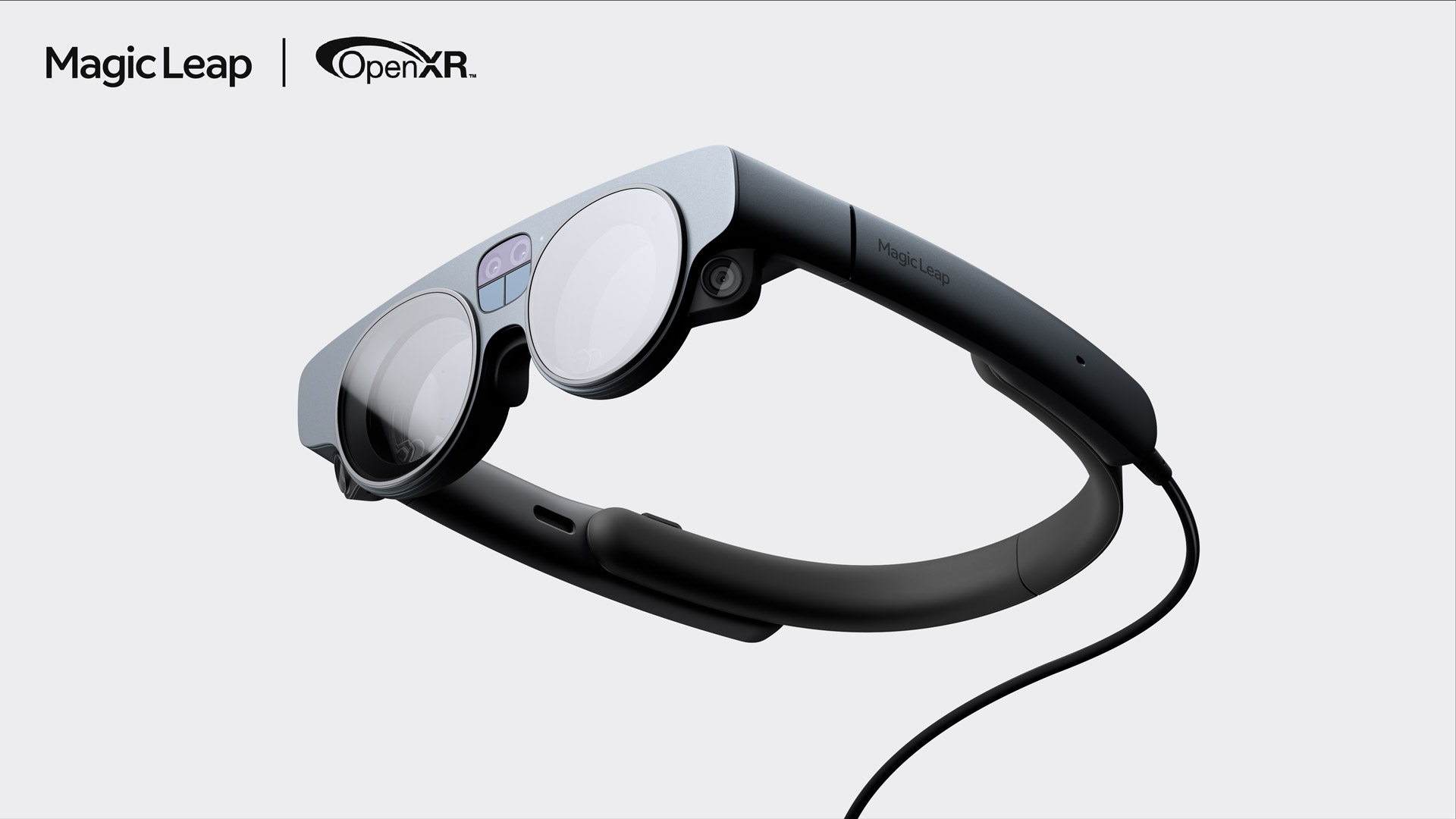Though delayed from its commitment last year, Magic Leap today announced that ML2 now fully supports OpenXR. The timing might have something to do with Apple’s looming entrance into the XR space.
Magic Leap had planned to deliver OpenXR support for its ML2 headset last year, but it was seemingly delayed until now. Today the company announced that Magic Leap 2 is conformant with OpenXR.
OpenXR is an open standard that aims to standardize the development of VR and AR applications, making hardware and software more interoperable. The standard has been in development since 2017 and is backed by virtually every major hardware, platform, and engine company in the XR industry.
“The adoption of OpenXR as a common AR ecosystem standard ensures the continual growth and maturation of AR,” Magic Leap said in its announcement. “Magic Leap will continue to advance this vision as Vice Chair of the OpenXR Working Group. In this role, Magic Leap provides technical expertise and collaborates with other members to address the needs of developers and end-users, the scope of the standard, and best practices for implementation.”
Its true that Magic Leap has been part of the OpenXR Working Group—a consortium responsible for developing the standard—for a long time, but we can’t help but feel like Apple’s heavily rumored entrance into the XR space lit a bit of a fire under the feet of the company to get the work across the finish line.
In doing so, Magic Leap has strengthened itself—and the existing XR industry—against what could be a standards upheaval by Apple.
Apple is well known for ignoring certain widely adopted computing standards and choosing to use their own proprietary technologies, in some cases causing a technical divide between platforms. You very well may have experienced this yourself, have you ever found yourself in a conversation about ‘blue bubbles and green bubbles’ when it comes to texting.
With an industry as young as XR—and with Apple being so secretive about its R&D in the space—there’s a good chance the company will have its own way of doing things, especially when it comes to how developers and their applications are allowed to interact with the headset.
If Apple doesn’t want to support OpenXR, this is likely the biggest risk for the industry; if developers have to change their development processes for Apple’s headset, that would create a divide between Apple and the rest of the industry, making applications less portable between platforms.
And while OpenXR-supporting incumbents have the upper hand for the time being (because they have all the existing XR developers and content on their side), one would be foolish to forget the army of experienced iOS developers that are used to doing things the ‘Apple way’. If those developers start their XR journey with Apple’s tools, it will be less likely that their applications will come to OpenXR headsets.
On the other hand, it’s possible that Apple will embrace OpenXR because it sees the value that has already come from years of ironing out the standard—and the content that already supports it. Apple could even be secretly part of the OpenXR Working Group, as companies aren’t forced to make their involvement known.
In the end it’s very likely that Apple will have its own way of doing things in XR, but whether that manifests more in the content running on the headset or down at the technical level, remains to be seen.
,
